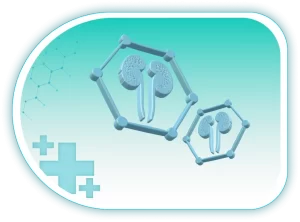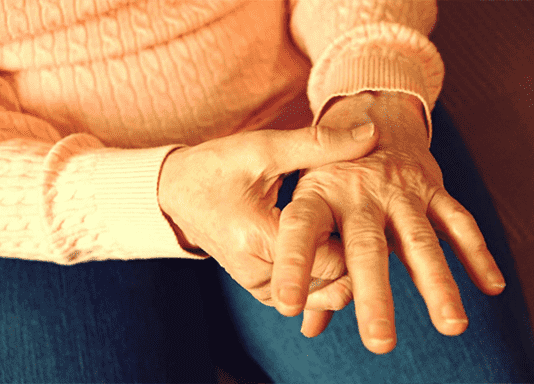1. What is arthritis?
The term arthritis refers to diseases which arise from the joint or structures which are related to the joints.
2. Does arthritis affect only adults?
This is a myth. Arthritis can occur in all age groups, ranging from children to the elderly, irrespective of age.
3. How many kinds of arthritic disorders are recognized?
There are nearly 150 varieties of arthritic disorders.
4. What are the common arthritic disorders seen in children?
The commonly encountered arthritic disorders in children are rheumatic fever, juvenile rheumatoid arthritis, and hypermobility of joints.
5. What is the rheumatic fever? What are its effects?
Rheumatic fever is a disease predominantly seen in children in the age group of 5 to 15 years. This disease follows an episode of upper respiratory tract infection caused by a bacteria called Beta- Hemolytic Streptococcus. The child has a fever with throat pain, and in a few days, this is followed by pain and swelling of joints. The swelling in the joints keep changing from one joint to another and this is called migratory arthritis. Fortunately, arthritis becomes completely alright without any residual deformity. But unfortunately, rheumatic fever can affect the heart valves. In medicine, it is often said that “rheumatic fever licks the joint and bites the heart”.
Once the heart valves get affected, the damage can be permanent, and the affected child has to be put on prolonged medical treatment and may even have to be taken up for heart surgery. Children with rheumatic fever are advised to take antibiotics like pencillin, either as a tablet or an injection, and parents should be compliant with the advice given by the doctor. Rheumatic fever can be prevented by improving the nutrition of children, preventing overcrowding, and through prompt treatment of upper respiratory infection with antibiotics, under medical supervision.
6. What arthritic disease is common in the younger age group?
Rheumatoid arthritis is commonly seen in the younger age group – between 24 to 40 years of age.
7. What is rheumatoid arthritis? How is it treated?
Rheumatoid arthritis is inflammatory arthritis predominantly seen in the age group of 25 to 40 years. This disease is more common in women than in men. The symptoms of a patient with rheumatoid arthritis are the pain, swelling, and warmth of the smaller joints of the hands, feet, ankles, knees, and elbows. These patients experience severe stiffness in the joints, especially in the morning.
Research is being done to find out the cause of rheumatoid arthritis. What we do know is that it has to do with the body’s immune system, which is responsible for protecting the human body from infection. In rheumatoid arthritis, unfortunately, the body’s immune system recognizes its own joints as an enemy and starts something akin to a civil war. In this war, missiles are fired into the joint which gets swollen and ultimately gets destroyed. Anti-inflammatory drugs like aspirin, ibuprofen etc are used to relieve pain and relieve the inflammation. However, these do not have any effect on the basic disease process. Gold, Antimalarials, D-Penicillamine, Sulfasalazine and Methotrexate are the Disease Modifying Drugs used in the management of rheumatoid arthritis. These drugs have the potential to control the disease process, but their administration is associated with side effects. Patients with rheumatoid arthritis should take the disease-modifying drugs only under medical supervision. It is better for patients to avoid another class of drugs called steroids since long-term intake of steroids may result in diabetes, elevated blood pressure, cataract, and osteoporosis (where bones become fragile).
8. What are arthritis diseases common in the elderly?
Osteoarthritis is the most commonly encountered disorder in the elderly.
9. What is osteoarthritis? How is it treated?
Osteoarthritis is a disease where there are wear and tear of a joint. To reduce the friction and facilitate better movement in a joint, there is a structure called cartilage which covers the opposing ends of the bones which meet to form a joint. Due to repeated trauma and the process of aging, this cartilage becomes thinner, and there is friction between the bones within the joint. This results in the patient experiencing pain in the joints when he moves them. The knees and hips are commonly affected in osteoarthritis. Patients with osteoarthritis have difficulty in walking, using the staircase and standing up from the squatting posture. When left untreated, patients with osteoarthritis of the knee become handicapped and dependent due to restricted mobility.
It is treated by administering painkillers and anti-inflammatory drugs to give symptomatic relief. These drugs should be used with utmost caution in the elderly since they are associated with side effects like gastric ulcers and even damage the kidney. Patients with osteoarthritis should avoid self-medication. Other useful suggestions are weight reduction. Usage of walking aids and measures to aid the protection of the joint (viz., usage of the kneecap, using a dining table for meals in preference over sitting on the floor, and sleeping on a cot) have beneficial effects. Patient education regarding chronic nature of the disease and the need for prolonged treatment and an exercise program go a long way in helping the overall treatment plan.
10. Is there any special diet for patients with arthritis?
There is no special diet for patients with arthritis. They have to take a well balanced nutritious diet and maintain a normal body weight. The only arthritic condition in which dietary restriction is imposed is a condition called gout in which patients need to avoid high-quality protein foods like non-vegetarian and soya beans.
11. What is the role of physiotherapy in arthritis?
Physiotherapy does form a sheet anchor in the management of patients with arthritis. These patients have prescribed a regular exercise program which helps to maintain joint motion and prevent deformities. Other modalities of treatment in physiotherapy include the application of heat or cold, traction, and assisted exercises.
12. Is arthritis curable?
A minority of conditions are curable, and the majority are controllable, depending upon the type of arthritis. Patients have to understand the chronic nature of the disease so that they are compliant with treatment. Patients also need to modify their lifestyle.
13. Is the pain in arthritis due to the involvement of the nervous system?
It is a myth that arthritis is a neurological disorder which will result in paralysis. Arthritic diseases are rheumatological disorders that originate in the joints. In rheumatoid arthritis, the body’s immune system recognizes its own joints as an enemy and starts something akin to a civil war. In this war, missiles are fired into the joint which gets inflamed and destroyed.
If you have any of the symptom mentioned-above, consult Dr. Stefan Matschke, the Orthopedic Surgery Specialist at German Medical Center- the best orthopedic clinic in Dubai. Dr. Matschke is an expert in providing personalized and compassionate treatment for a range of joint diseases, including arthritis.



















